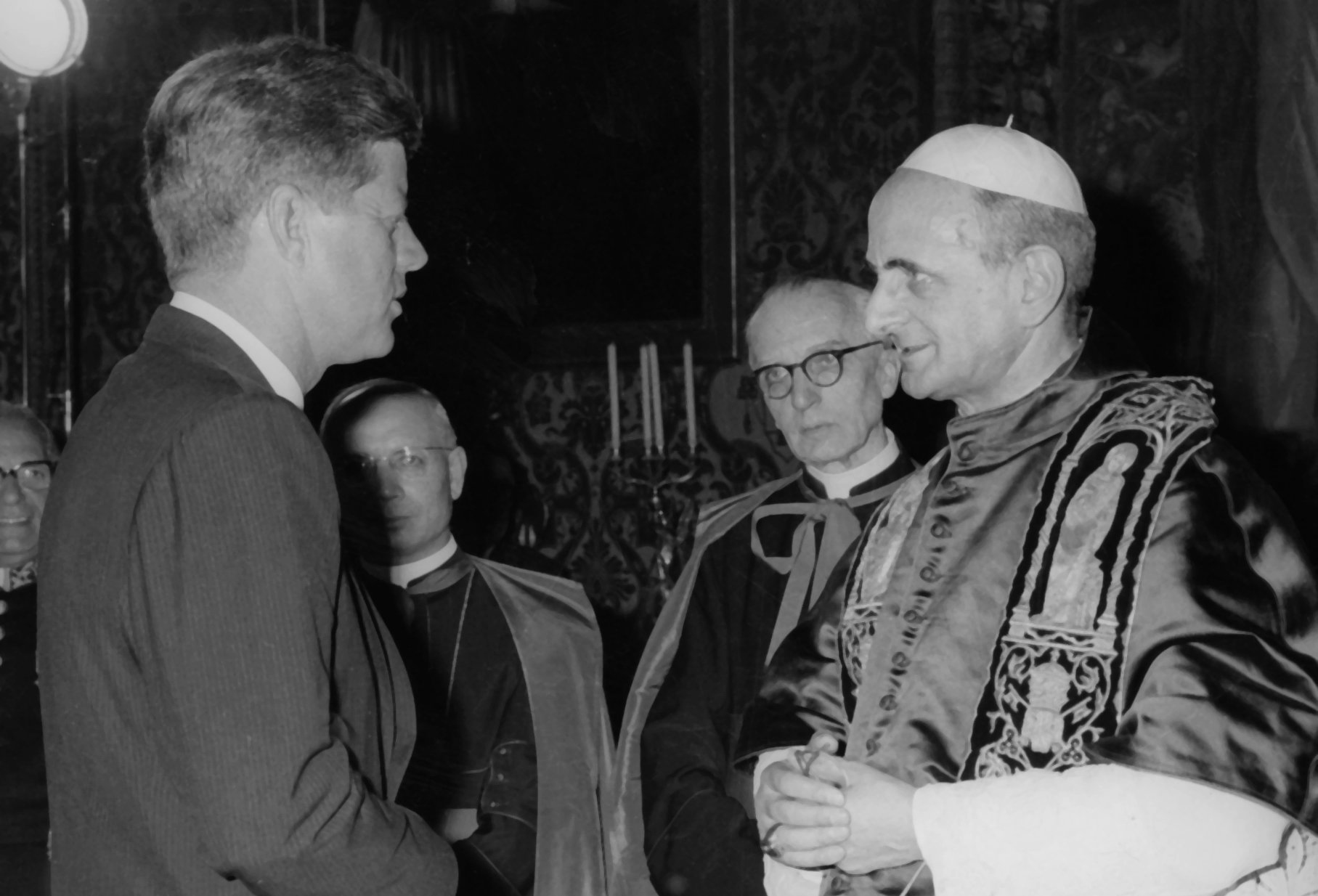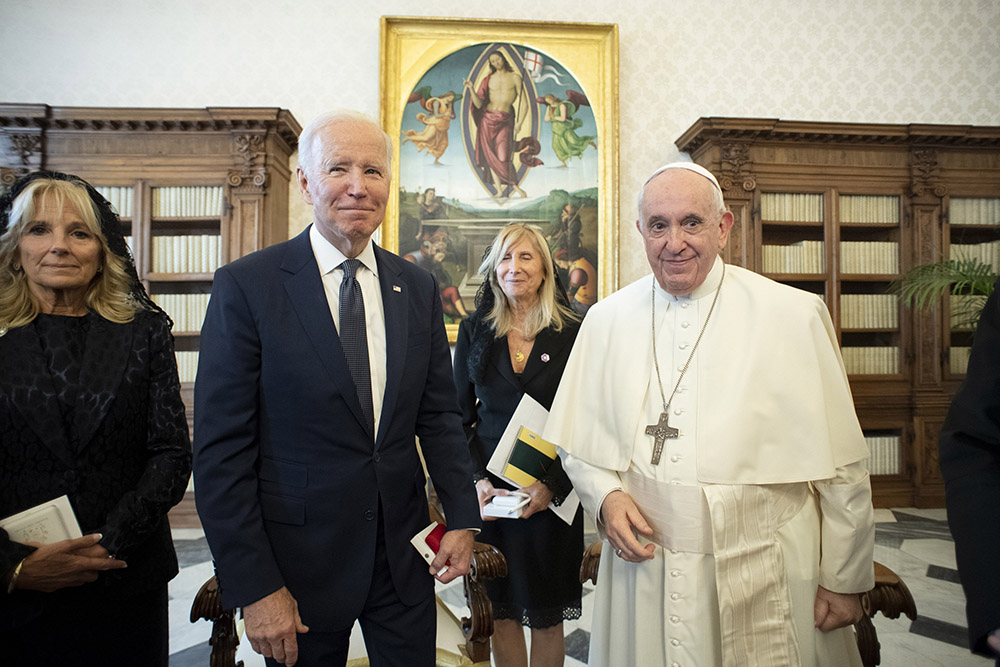
PROSPECT HEIGHTS — On Nov. 22, 1963, an open limousine passed through Dealey Plaza in Dallas, where onlookers heartily cheered President John F. Kennedy and his wife, Jacqueline.
Texas Gov. John Connally and his wife, Nellie, were also in the car. Nellie turned to the president, the first Catholic ever elected to the office, and commented on the crowd’s enthusiasm — a contrast to the religious sentiments argued during the 1960 presidential campaign.
Texas, part of the “Bible Belt,” was a political stronghold for Protestants who feared the young Democrat from Massachusetts would be a tool for the Vatican. JFK narrowly won the election.
“Mr. President,” Nellie Connally said to Kennedy, “they can’t make you believe now that there are not some in Dallas who love and appreciate you, can they?”
His cheerful reply was, “No, they sure can’t.” Those are believed to be his last words. Gunfire shattered the plaza’s revelry, killing the president.
The United States has seen 11 presidents since the assassination of Kennedy 60 years ago.
The only Catholic among them is the current office holder — Joe Biden. His election in 2020 reflects a pronounced shift in how the nation views presidents who are Catholic.
“Despite the fact that Biden goes to church and talks publicly about his religion, it appears to be less of a political issue,” said Boris Heersink, associate professor of political science at Fordham University.
Heersink further explained that “there has been more of a merger in many people’s minds between different strains of Christianity. That was not true in 1928 and it was not true in 1960.”
Why 1928? Because it saw the first time a Catholic received the nomination of a political party to compete for the presidency.
That distinction goes to New York Gov. Alfred E. Smith who, like Kennedy, was accused of being a papal agent.
“In those elections there was a substantial number of Democratic voters who either voted Republican or did not vote because they could not get themselves to support a Catholic,” Heersink said.
He added that in 1928, some Democratic politicians in the South “actually organized and campaigned on behalf of the Republican nominee Herbert Hoover,” who won in a landslide.
Heersink said anti-Catholic sentiment subsided noticeably by 1960, but it wasn’t dead, as then-Sen. Kennedy began his campaign for the presidency.
In September, 150 Protestant ministers meeting in Washington asserted Kennedy should repudiate Church teachings to prove his independence from the Vatican.
Kennedy faced the “religion issue” directly with a Sept. 12 speech before the Greater Houston Ministerial Association.
He told the audience:
“Contrary to common newspaper usage, I am not the Catholic candidate for president. I am the Democratic Party’s candidate for president, who happens also to be a Catholic. I do not speak for my Church on public matters, and the Church does not speak for me.
“I will make my decision in accordance with these views, in accordance with what my conscience tells me to be the national interest, and without regard to outside religious pressures or dictates. And no power or threat of punishment could cause me to decide otherwise.”
The speech was widely praised, and religion did not thwart Kennedy’s slim victory over the Republican, Richard Nixon.
Still, unlike Biden, Kennedy was much less vocal about his faith, said Meghan Clark of St. John’s University. She is associate professor of moral theology and assistant chair of the Department of Theology and Religious Studies.
Clark said Kennedy was more reserved because he was criticized, not just by the general non-Catholic public, but also “within Catholicism.”
The Church, Clark explained, “had not embraced democracy and religious pluralism as we know it.”

That would come, she added, with Pope John XXIII and the Second Vatican Council.
But, Clark added, it would be a mistake to assume Kennedy’s Catholicism played no role in his legacy.
She explained that his faith is “an underappreciated factor” in his handling of the Cuban Missile Crisis. Historians say this 1962 confrontation was the closest the world came to full-scale nuclear war.
Kennedy asked Pope John XXIII to help resolve the dispute with the Soviet Union over missiles stationed in Cuba.
The pope agreed, Clark said, adding that this “quiet papal diplomacy” helped achieve a de-escalation of tensions.
Biden, by comparison, has drawn sharp criticism from Catholics who believe he ought to be denied Communion for his support of abortion rights.
But Biden has also won praise for supporting other pillars of Catholic social teaching, Clark said.
“We see Joe Biden’s Catholic values on display in his firm advocacy for workers and union rights,” she explained. “This is textbook Catholic social teaching.”
His stances on immigration, however, are “deeply frustrating,” Clark said.
Biden in 2020 promised to hold Immigration and Customs Enforcement accountable for harsh detention centers, to stop separation of immigrant families, to eliminate border restrictions, and to turn Deferred Action for Childhood Arrivals (DACA) into a permanent program.
“The gap between President Biden’s promises on welcoming refugees and migrants, in my opinion, does not match up in the practical policies of the administration,” Clark said. “I expected the Biden administration to increase refugee admissions far beyond what has occurred.”
Biden also promised to halt construction of the “border wall,” saying there would not be “another foot” of it built.
Last month, however, the Biden Administration waived its earlier environmental objections to the project, clearing the way for another 20 miles of construction.
“JFK went to Mass at Holy Trinity in Georgetown before his inauguration,” Clark noted, which is the same parish where Biden worships. “But in that time, [Kennedy] just was not free to speak about his faith in the ways that Joe Biden can.”
